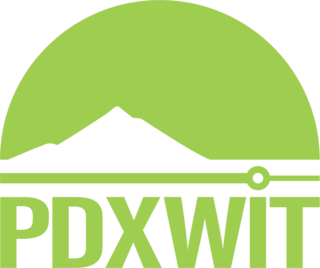Facility management or facilities management (FM) is a professional discipline focused on coordinating the use of space, infrastructure, people, and organization. Facilities management ensures that physical assets and environments are managed effectively to meet the needs of their users. By integrating maintenance, safety, efficiency, and comfort, FM supports organizational goals within the built environment. The profession operates under global standards such as ISO 41001 and is guided by organizations like the International Facility Management Association (IFMA).

A glass ceiling is a metaphor usually applied to women, used to represent an invisible barrier that prevents a given demographic from rising beyond a certain level in a hierarchy. The metaphor was first used by feminists in reference to barriers in the careers of high-achieving women. It was coined by Marilyn Loden during a speech in 1978.

Occupational hygiene or industrial hygiene (IH) is the anticipation, recognition, evaluation, control, and confirmation (ARECC) of protection from risks associated with exposures to hazards in, or arising from, the workplace that may result in injury, illness, impairment, or affect the well-being of workers and members of the community. These hazards or stressors are typically divided into the categories biological, chemical, physical, ergonomic and psychosocial. The risk of a health effect from a given stressor is a function of the hazard multiplied by the exposure to the individual or group. For chemicals, the hazard can be understood by the dose response profile most often based on toxicological studies or models. Occupational hygienists work closely with toxicologists (see Toxicology) for understanding chemical hazards, physicists (see Physics) for physical hazards, and physicians and microbiologists for biological hazards (see Microbiology, Tropical medicine, Infection). Environmental and occupational hygienists are considered experts in exposure science and exposure risk management. Depending on an individual's type of job, a hygienist will apply their exposure science expertise for the protection of workers, consumers and/or communities.

IDA, The Danish Society of Engineers, is a Danish trade union and interest group for highly educated professionals with a background in technology, science or IT. It has the abbreviation IDA. IDA's headquarters are in Copenhagen, Denmark.
CBN, or cbn, may refer to:
Out & Equal Workplace Advocates is a United States lesbian, gay, bisexual and transgender (LGBTQ) workplace equality non-profit organization headquartered in Oakland, California.

Ivanti is an IT software company headquartered in South Jordan, Utah, United States. It produces software for IT Security, IT Service Management, IT Asset Management, Unified Endpoint Management, Identity Management and supply chain management. It was formed in January 2017 with the merger of LANDESK and HEAT Software, and later acquired Cherwell Software. The company became more widely known after several major security incidents related to the VPN hardware it sells.
Workplace wellness, also known as corporate wellbeing outside the United States, is a broad term used to describe activities, programs, and/or organizational policies designed to support healthy behavior in the workplace. This often involves health education, medical screenings, weight management programs, and onsite fitness programs or facilities. It can also include flex-time for exercise, providing onsite kitchen and eating areas, offering healthy food options in vending machines, holding "walk and talk" meetings, and offering financial and other incentives for participation.

St. Ursula Academy is Toledo's oldest, fully accredited, all-female, Catholic, preparatory school helping girls in grades 6 to 12 for college entry, since 1854.
The Payment Card Industry Data Security Standard is an information security standard used to handle credit cards from major card brands. The standard is administered by the Payment Card Industry Security Standards Council, and its use is mandated by the card brands. It was created to better control cardholder data and reduce credit card fraud. Validation of compliance is performed annually or quarterly with a method suited to the volume of transactions:

The National Cannabis Industry Association (NCIA) is an American non-profit organization based in the District of Columbia, with an additional office in Denver, Colorado. NCIA is the largest cannabis trade association in the U.S. and the only organization representing state-sanctioned cannabis-related businesses at the federal level. Its mission is "to promote the growth of a responsible and legitimate cannabis industry and work for a favorable social, economic and legal environment for that industry in the United States." The organization was founded in late 2010 and has been described as the "first national trade group for the cannabis industry" in the United States.
Jackson Lewis P.C. is an American law firm that specializes in labor and employment law and assisting companies in facilitating immigration. It has a reputation as one of the top U.S. union-busting practices.

Occupational safety and health (OSH) or occupational health and safety (OHS) is a multidisciplinary field concerned with the safety, health, and welfare of people at work. OSH is related to the fields of occupational medicine and occupational hygiene and aligns with workplace health promotion initiatives. OSH also protects all the general public who may be affected by the occupational environment.
LRN, founded in 1994, is an American company which provides advising and educating on ethics, regulatory compliance, and corporate culture to other organizations. When founded, the company focused on the legal industry and was named Legal Research Network, before expanding into other fields.
The cannabis industry is composed of legal cultivators and producers, consumers, independent industrial standards bodies, ancillary products and services, regulators and researchers concerning cannabis and its industrial derivative, hemp. The cannabis industry has been inhibited by regulatory restrictions for most of recent history, but the legal market has emerged rapidly as more governments legalize medical and adult use. Uruguay became the first country to legalize recreational marijuana through legislation in December, 2013. Canada became the first country to legalize private sales of recreational marijuana with Bill C-45 in 2018.
Cannabis product testing is a form of product testing analyzes the quality of cannabis extracts, edibles, and THC and CBD levels in an emergent consumer market eager to sell adult use products. Analytical chemistry and microbiology laboratories are important entities in consumer protection. These labs not only determine the condition and viability of cannabinoids, water content, heavy metals, pesticides, terpenes, yeast, but also the presence of mold, mycotoxins, and solvents. These laboratories emerged when advocates of cannabis testing raised concerns about potential contaminants.

A budtender is a title of a staff member who works within a dispensary or store where medical or recreational cannabis is sold. Their job is to offer suggestions to customers, answer questions, handle products and showcase products being sold.
Occupational health concerns over the use of cannabis among workers are becoming increasingly important as cannabis becomes legal in more areas of the US. Of note, employers have concerns of workers either coming to work acutely impaired or recent use of cannabis still being detected in the body. Employment issues such as ADA law as it relates to accommodations for cannabis, paying unemployment benefits or paying out workers compensation benefits and disability claims are all important issues. While federal law still prohibits use, employers in different states have taken different stances based on whether they are federal contractors, perform safety sensitive work or whether the cannabis use is acutely impairing the employee.

LGBT people in science are students, professionals, hobbyists, and anyone else who is LGBT and interested in science. The sexuality of many people in science remains up for debate by historians, largely due to the unaccepting cultures in which many of these people lived. For the most part, we do not know for certain how people in the past would have labelled their sexuality or gender because many individuals lived radically different private lives outside of the accepted gender and sexual norms of their time. One such example of a historical person in science that was arguably part of the LGBT community is Leonardo da Vinci, whose sexuality was later the subject of Sigmund Freud's study.

Portland Women in Technology was a 501(c)(3) nonprofit organization based in Portland, Oregon with the mission of advancing inclusion in the technology industry. They hosted four to six events per month, which ranged from member-driven events to monthly happy hours. In 2021, all formerly in-person PDXWIT events became virtual due to the COVID-19 pandemic. The organization is to be dissolved in April 2024 due to lack of funding.










